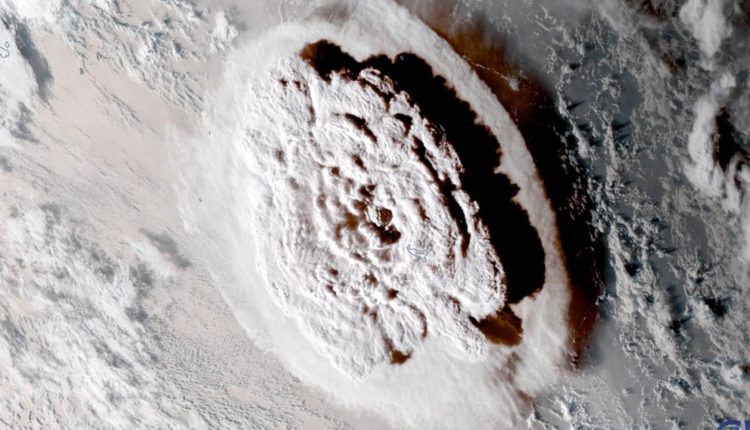The eruption of the Tonga volcano in January has been confirmed as the biggest explosion ever recorded in the atmosphere by modern instrumentation.
It was far bigger than any 20th Century volcanic event, or indeed any atom bomb test conducted after WWII.
The assessment comes in a pair of scholarly papers in the journal Science that have reviewed all the data.
Of recent history, it’s likely only the Krakatoa eruption of 1883 rivalled the atmospheric disturbance produced.
That catastrophic event in Indonesia is thought to have claimed more than 30,000 lives. Fortunately, the 15 January climactic eruption of the underwater volcano at Hunga Tonga-Hunga Ha’apai (HTHH) in the south Pacific resulted in very few deaths, even though it too produced large tsunamis.
“Tonga was a truly global event, just as Krakatau was, but we’ve now got all these geophysical observation systems and they recorded something that was really unprecedented in the modern data,” Dr Robin Matoza, from the University of California, Santa Barbara, told BBC News. He is the lead author on one of the papers.
Scientists now have access to an extraordinary array of ground-based and spaceborne instruments, including atmospheric pressure sensors, seismometers, hydro-phones, and a fleet of satellites that monitor the Earth across the entire light spectrum.
The colossal Tonga explosion, which came at the end of of several weeks of activity at the seamount, produced several types of atmospheric pressure waves that propagated vast distances.
In the audible range of frequencies, people 10,000km away in Alaska reported hearing repeated booms.
The global network of detectors set up to monitor compliance with the Comprehensive Nuclear-Test-Ban Treaty picked up the infrasound signal. Infrasound has frequencies that are just below what humans are capable of hearing.
The network’s data indicated the Tonga volcano blast produced an atmospheric pressure wave comparable with that from the biggest ever nuclear explosion – the Tsar bomb detonated by the Soviets in 1961 – but lasted four times longer.
Source: BBC


Comments are closed.